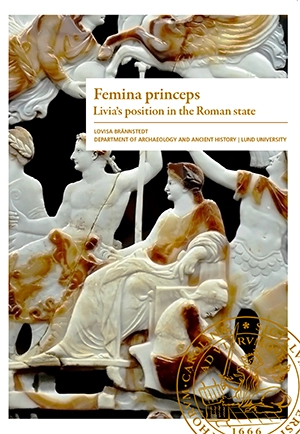From his exile in a remote province on the Black Sea the Roman poet Ovid wrote a letter to his wife, urging her to safeguard his return by praying not to the traditional gods, but to Livia, the femina princeps. In the Roman society women were traditionally associated with the domestic sphere, yet Livia Drusilla, the second wife of the emperor Augustus, managed to live at the very centre of political life for nearly seventy years. Ovid’s appeal illustrates Livia’s paradoxical position: one that somehow combined the status of a formally powerless femina with the powerful male supremacy conveyed by the term princeps. It also forms the point of departure for the present study, which explores the creation and consequences of this paradox, investigating how and why Livia’s position was established and how female imperiality became a constituent part of the early principate. Lovisa Brännstedt, Department of Archaeology and Ancient History, Lund University. Femina princeps. Livia’s position in the Roman state is her doctoral thesis in Ancient History and Classical Archaeology.
Åtkomstkoder och digitalt tilläggsmaterial garanteras inte med begagnade böcker





















